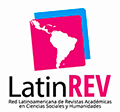Quevedo and the multiplicity of meanings in Sueños (17th century) in translations into Portuguese, French and English
DOI:
https://doi.org/10.11606/issn.2317-9511.v30i30p8-24Keywords:
Translation Criticism. Polysemy. Sueños y Discursos . Quevedo y Villegas.Abstract
One of the stylistic marks of Quevedo in his seventeenth - century satirical narrative is word game, it is ironic and humoristically provocative, based on the multiplicity of meanings of a word (polysemy), which provokes, in a more or less explicitly way, the laughter of the reader. Thus, in th is article, the resources applied to the polissemias are analyzed comparatively in three translations of Sueños , one for the Brazilian Portuguese, by Liliana Raquel Chwat (2006), one for the English, with the authorship of Wallace Woolsey (1976), and, fina lly, one for the French, formulated by Annick Louis and Bernard Tissier (2003). We have based our critical analysis on the reflections of Paulo Henriques Britto, Mário Laranjeira, or yet, Antoine Berman. We have found that the translation of these word games represent a real challenge for the translators who either omit them, or recreate these moods with new word games.Downloads
Download data is not yet available.
Downloads
Published
2017-12-20
Issue
Section
Articles
License
Copyright (c) 2022 Andréa Cesco, Gilles Jean Abes

This work is licensed under a Creative Commons Attribution-NonCommercial-ShareAlike 4.0 International License.
Autores que publicam nesta revista concordam com os seguintes termos:
- Autores mantém os direitos autorais e concedem à revista o direito de primeira publicação, com o trabalho simultaneamente licenciado sob a Licença Creative Commons Attribution BY-NC-SA que permite o compartilhamento do trabalho com reconhecimento da autoria e publicação inicial nesta revista.
- Autores têm autorização para assumir contratos adicionais separadamente, para distribuição não-exclusiva da versão do trabalho publicada nesta revista (ex.: publicar em repositório institucional ou como capítulo de livro), com reconhecimento de autoria e publicação inicial nesta revista.
- Autores têm permissão e são estimulados a publicar e distribuir seu trabalho online (ex.: em repositórios institucionais ou na sua página pessoal) a qualquer ponto antes ou durante o processo editorial, já que isso pode gerar alterações produtivas, bem como aumentar o impacto e a citação do trabalho publicado (Veja O Efeito do Acesso Livre).
How to Cite
Cesco, A., & Abes, G. J. (2017). Quevedo and the multiplicity of meanings in Sueños (17th century) in translations into Portuguese, French and English. TradTerm, 30, 8-24. https://doi.org/10.11606/issn.2317-9511.v30i30p8-24







